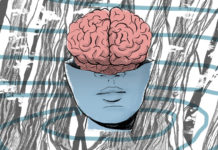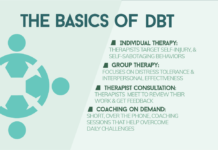Nevada Legislation Aims to Curb Psychotropics in Foster Children
A touching article in the Las Vegas Sun follows one child from abandonment through foster placements, polypharmacy, suicidality, delinquency and homelessness to stability off...
Madness and the Family, Part III: Practical Methods for Transforming Troubled Family Systems
We are profoundly social beings living not as isolated individuals but as integral members of interdependent social systems—our nuclear family system, and the broader social systems of extended family, peers, our community and the broader society. Therefore, psychosis and other forms of human distress often deemed “mental illness” are best seen not so much as something intrinsically “wrong” or “diseased” within the particular individual who is most exhibiting that distress, but rather as systemic problems that are merely being channeled through this individual.
Enjoying the Road Less Traveled
The people that my son and I continued to consult with over the years didn't talk of mental illness as a brain disease, a chemical imbalance, or a problem with one's genes. Depending on the therapy, they spoke in terms of restoring life force energy, changing cellular vibration, learning to listen and understand, and building a self.
“Is Depression an Illness? Or Part of the Human Condition?”
Psychotherapist Chantal Marie Gagnon voices her frustration with social media posts and stigma reduction ads that perpetuate the belief that all mental health issues...
The Role of Pets in Supporting People Living with Mental Distress
From The Mental Elf: Recent research confirms what many animal lovers already know - that pets can play a major role in improving people's mental...
Training Nursing Home Staff in Understanding Needs Can Reduce Antipsychotic Use
A new study published in JAMA Internal Medicine, the largest study of its kind, has shown it is possible to reduce the use of antipsychotics in nursing homes, by engaging their staff in a training program designed to target residents’ strengths and their unmet needs.
Correcting Misconceptions of Trauma-informed Care with Survivor Perspectives
Trauma-informed approaches have the potential to promote recovery but must involve survivors and service-users to prevent the experience of retraumatization within psychiatric and mental health services.
Blaming Climate Change Inaction on Psychological Barriers Misses the Point
Researchers argue that blaming climate change inaction on psychological barriers ignores the effects of neoliberal capitalism and social structures.
In a Traumatised World, is Psychedelic Therapy our Best Hope?
From VolteFace Magazine: MDMA-assisted psychotherapy can play a major role in helping people heal from the effects of trauma.
"The results really are incredible and I’ve had...
“Hearing Voices: tracing the borders of normality”
-Rhianna Goozee discusses the development of the Hearing Voices Movement and how research has blurred the lines between "healthy" and "normal" minds.
Differing Depression Diagnostic Tools May Influence Research Findings
The type of diagnostic assessment used in research settings, either fully structured or semi-structured interview, may affect which participants in receive a diagnosis of major depression.
Mad Science, Psychiatric Coercion and the Therapeutic State: An Interview with Dr. David Cohen
MIA's Peter Simons interviews David Cohen, PhD, on his path to researching mental health, coercive practices, and discontinuation from psychiatric drugs.
Meaningful Conversation is a Crucial Part of Medicine
From Scientific American: Doctor-patient communication is an incredibly important part of medical treatment. However, doctors often do not have the time or resources to be...
“Is a Job a Prescription for a Young Person with Mental Health Issues?”
-A "fact checker" investigates a statement by an Australian politician describing the government's supportive employment initiative as a "prescription" for young people struggling with mental health problems.
Critical Psychiatry Network 2017 Conference Report
From Critical Psychiatry: The Critical Psychiatry Network's 2017 conference raised a variety of issues and featured a range of differing perspectives pertaining to the societal...
Study Explores Impact of Urban vs. Rural Upbringing on Stress Response
A new study investigates the relationships between early-home environmental factors and later-life physiological response to psychosocial stressors.
Victims of Success: An Update from Mad in America Continuing Education
Within days of announcing the webinar and providing the link to register, we were deluged with enrollments. It turns out that a great many professionals, advocates and clinical managers are interested in learning about Open Dialogue and its application to an American community.
Finding Clarity Through Clutter
For the last three years, I have been working with people, labeled "hoarders," who have become overwhelmed by their possessions in their homes. This has been some of the most interesting, challenging and thought-provoking work I have ever done. It is also an area that, I think, highlights all of the issues that challenge us in helping people who feel overwhelmed, for whatever reason.
Dialectical Behavior Therapy Reduces Self-Harm and Suicide Attempts
A new meta-analysis finds that DBT reduces self-harm, suicide attempts, and reduces the frequency of psychiatric crisis service utilization.
Is a Little Stigma Better Than None?
An anti-anti-stigma campaign
The whole anti-stigma campaign is something of a joke. Google the word “stigma,” see for yourself. Mental health labels are inherently stigmatizing,...
The Impact of Mindfulness on Mental Health Stigma Resistance
A new study examines the association of mindfulness and stigma resistance among individuals with a psychiatric diagnosis.
Call For Abstracts: Philosophical Perspectives on Critical Psychiatry
The Association for Advancement in Philosophy and Psychiatry is issuing a call for abstracts, with a particular interest in submissions from service users. The...
Overemphasis on Disease Entities in Psychosis
From Critical Psychiatry: Jim van Os, who has argued we should abandon the term "schizophrenia," recently wrote an article in support of a unitary model...
Not Everyone Wants to Silence the Voices in Their Heads
From Science of Us: There seems to be a growing interest in the concept of healthy voice-hearing. The idea that hearing voices may not be...
Peer Providers of Mental Health Services Use Personal Narratives to Help
Interviews with peer providers indicate that they strategically use their personal illness and recovery story in order to assist others.


























